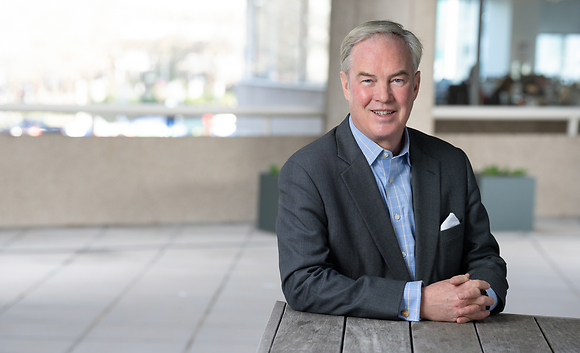Trevor Potter Discusses Meeting the Russian Ambassador with The Atlantic
Who did the Russian ambassador meet in D.C.? Welcome to America’s capital city, where everyday encounters may not be what they seem. It is a funny feeling to realize you may have unwittingly come into contact with Russian intelligence—but not, these days, a totally uncommon one in Washington.
“There I was, standing in the entrance hall,” recalled Trevor Potter, a prominent election lawyer and former chairman of the Federal Election Commission. This was in December, at a lavish holiday party at the French ambassador’s residence, teeming with D.C. types—diplomats, journalists, consultants, lobbyists, current and former officials. Potter had just entered when he saw the French ambassador, whom he knew, conversing with a man he didn’t know: a stocky, Slavic-looking fellow in a dark suit.
“The French ambassador said, ‘Do you know Sergey, the Russian ambassador?’ I said I did not, and we shook hands,” Potter told me recently.
At the time, there was nothing particularly notable about the encounter. But now, with Congress and federal investigators probing alleged Russian meddling in last year’s presidential election, it feels a little bit creepy. The ambassador Potter met that night, Sergey Kislyak, is a central figure, alleged to be a high-level Kremlin spy, and his every phone call and handshake with associates of President Trump has come under close examination.
. . .
That night at the French ambassador’s Christmas party, Trevor Potter struggled to come up with small talk after meeting Kislyak. The palatial mansion was adorned with winter decorations, including a group of penguins on a staircase glittering with fake snow. Potter remarked that the display must remind Kislyak of the climate back home. Without a trace of humor, Kislyak sternly informed him that penguins live exclusively in the southern hemisphere; there are none in Russia.
With the alleged Russian meddling that was much in the news, Potter didn’t want to bring up the election, but not because he was mindful of the potential intelligence implications. “It just would have been impolite,” he said.
Mr. Potter also leads the Political Law team at Caplin & Drysdale.
For the full article, please visit The Atlantic’s website.
Excerpt taken from the article “Washington’s Spy Paranoia” by Molly Ball for The Atlantic.
Attorneys
- Senior Counsel
